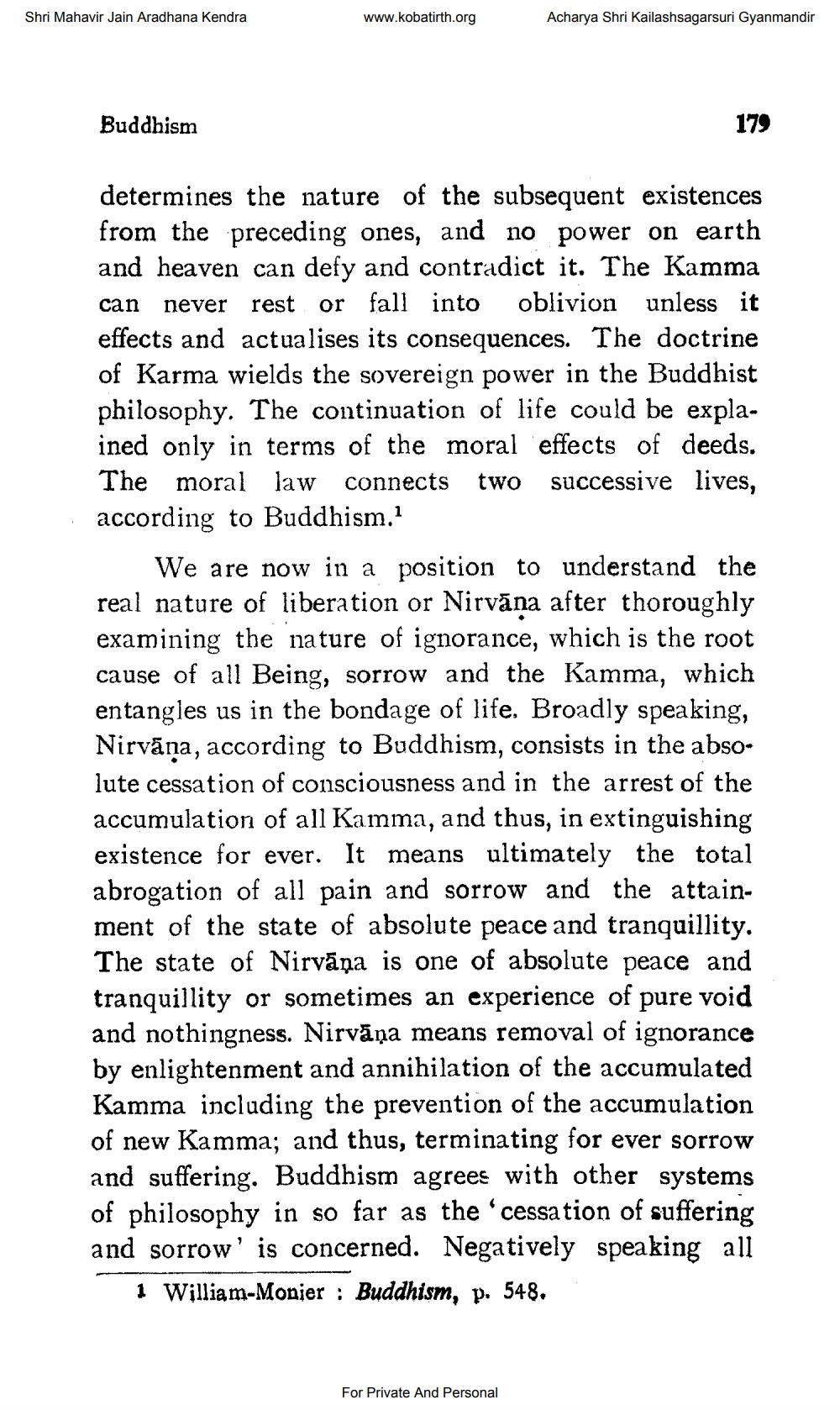________________
Shri Mahavir Jain Aradhana Kendra
www.kobatirth.org
Acharya Shri Kailashsagarsuri Gyanmandir
Buddhism
179
determines the nature of the subsequent existences from the preceding ones, and no power on earth and heaven can defy and contradict it. The Kamma can never rest or fall into oblivion unless it effects and actualises its consequences. The doctrine of Karma wields the sovereign power in the Buddhist philosophy. The continuation of life could be explained only in terms of the moral effects of deeds. The moral law connects two successive lives, according to Buddhism.
We are now in a position to understand the real nature of liberation or Nirvāna after thoroughly examining the nature of ignorance, which is the root cause of all Being, sorrow and the Kamma, which entangles us in the bondage of life. Broadly speaking, Nirvāna, according to Buddhism, consists in the absolute cessation of consciousness and in the arrest of the accumulation of all Kamma, and thus, in extinguishing existence for ever. It means ultimately the total abrogation of all pain and sorrow and the attainment of the state of absolute peace and tranquillity. The state of Nirvāna is one of absolute peace and tranquillity or sometimes an experience of pure void and nothingness. Nirvāņa means removal of ignorance by enlightenment and annihilation of the accumulated Kamma including the prevention of the accumulation of new Kamma; and thus, terminating for ever sorrow and suffering. Buddhism agrees with other systems of philosophy in so far as the 'cessation of suffering and sorrow' is concerned. Negatively speaking all
1 William-Monier : Buddhism, p. 548.
For Private And Personal




